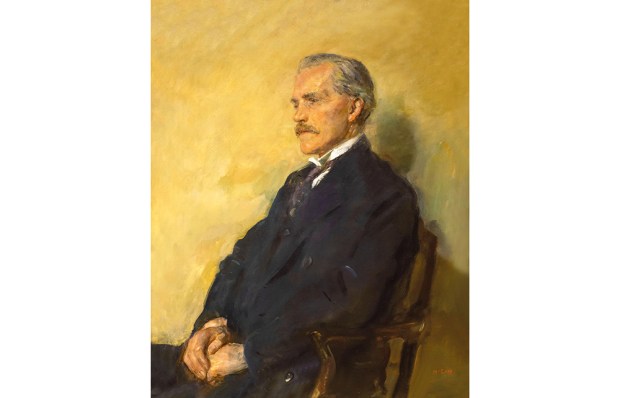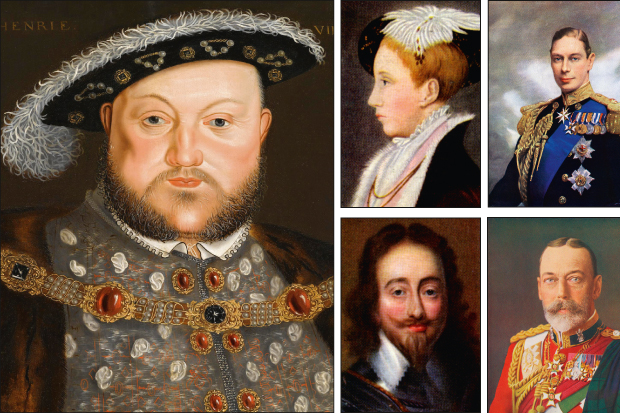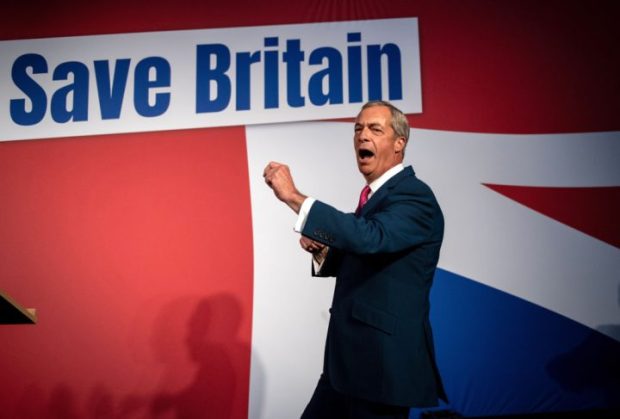In our own troubled times it is useful and comforting to recollect that ’twas ever thus. Violent threats against prominent politicians? Jenny Uglow reminds us that in 1802 Colonel Edward Despard, a British officer turned radical agitator, was the last person in England to be sentenced to be hanged, drawn and quartered, for a plot to kill King George III and the cabinet; while in 1812, the wildly unpopular hardline Tory Spencer Perceval became the only prime minister (so far) to be assassinated, the victim of John Bellingham, a deranged bankrupt.
Threats to civil liberties? The first Defence of the Realm Act was passed in 1798 by the younger William Pitt’s administration, extending the Treason Act to cover any political meeting and giving magistrates the power to detain without trial those they suspected of sedition, up to and including the leader of the Whig opposition, Charles James Fox.
Financial crises? In 1810 the bank Brickwood, Rainer & Co. crashed with debts of more than half a million pounds, taking down with it as it fell provincial banks in Salisbury and Exeter and five City of London merchant houses.
The following year no fewer than 20 banks closed their doors. The crisis caused the gloomy economist David Ricardo to warn that exchanging gold for worthless paper banknotes meant rampant inflation. Meanwhile the Revd Thomas Malthus complained that the incorrigible tendency of the feckless poor to reproduce themselves without the means to support their progeny would result in inevitable mass starvation.
In the event (perhaps thanks to a court character reference from an old comrade-in-arms, Admiral Horatio Nelson), Despard and half a dozen of his co-conspirators were spared the painful indignity of having their genitals hacked off and their guts extracted and burned before their eyes, and were merely hanged and then beheaded, before a delirious 20,000-strong crowd on a gaol roof in Southwark.
And though family firms failed — leaving a trail of ruined creditors, exiled remittance men, financiers who shot themselves in despair — and many poor people did indeed go hungry, Armageddon was successfully staved off and, in a very British way, the apocalypse was postponed for another day.
The odd mix of medieval judicial savagery and the failures of sophisticated high finance typifies the neurotic state of a nation that — virtually throughout the two decades that Uglow surveys — was at war with a Europe under the heel of revolutionary and Napoleonic France, and often in hourly expectation of foreign invasion and occupation.
Comparisons with 1940 are inevitable, but the state of siege which the country endured for years under Bonaparte’s squat shadow lasted for far longer than the brief months of Churchillian defiance of Hitler.
Constant war is the condition under-lying all sectors of society that Uglow visits. Two of Jane Austen’s brothers, Francis and Charles, became admirals in the navy (and another, Henry, joined the voluntary militia). Timber merchants grew fat and rich supplying the hearts of oak for the fleet. Any young man taking a stroll in any coastal town was in great danger of being kidnapped by the licensed thugs of the press gang and turned into a not-so-jolly Jack Tar. The original Dad’s Army were the volunteers and yeomanry who manned the cliffs of England and the newly built martello towers ready to repel Boney.
Uglow is a distinguished publishing editor — a gamekeeper who has turned herself into a skilful poacher with a series of well-researched and lucidly written biographies and histories set in the 18th and 19th centuries. She is, therefore, well qualified to offer, not a snapshot, but a vast, sweeping and comprehensive panorama — she calls it ‘a crowd biography’ — of a country shuddering in the throes of an existential crisis.
She follows a large cast of characters — merchants and factory hands, soldiers and sailors, bankers such as the Hoare family, Quaker reformers such as the Gurneys of Norwich, farmers, aristocrats and politicians — as they weave, duck, and dive their way through years which letter-writers call at first ‘the war’. Later, when the conflict seems to be becoming eternal, they revert to the euphemisms ‘troubled’ or ‘turbulent’, before settling on the starkly simple ‘in these times’ to indicate their abnormality.
In a succession of short chapters, Uglow carries us chronologically from the aftermath of the French revolution, seen by young radical idealists such as William Wordsworth as ‘bliss’ and ‘heaven’, through to the disillusionment of bitter conflict with France, as the very state that had promised blissful liberation from oppression turned itself — at least in the eyes of Pitt’s government — into an aggressive tyranny that menaced the ancient liberties, indeed the very existence, of freeborn Britons.
The single, shocking event that transformed perceptions of the revolution from heaven to hell in most English eyes was the execution of Louis XVI in 1793 — the year that Uglow’s chronology opens. Although the London government shed crocodile tears for the decapitated ruler, the guillotining of the king was a propaganda gift for it. The regicide enabled Pitt to paint the French revolutionaries — and later Napoleon, who succeeded them — as blood-spattered monsters steeped in the gore of the martyred monarch.
In the biting caricatures of James Gillray, published in such government-financed sheets as the Anti-Jacobin Review, the French were portrayed as a half-starved collection of rabid wolves. Their new ruler was shown as a sinister, satanic demon. This percolated down to the nursery, where terrified children were put to bed with nightmare tales of Boney the bogeyman come to murder them breathed into their tender ears.
Uglow sees the government’s justification for the wars as a defence of liberty as monumental hypocrisy at a time when the Pitt ministry itself was erecting a repressive network of Riot Acts and agents provocateurs to crush internal dissent. Radicals such as Tom Paine, Leigh Hunt, Sir Francis Burdett and even the Whig opposition leaders Fox, Richard Brinsley Sheridan and Lord Holland were branded as traitors ready to play the part of Bonaparte’s collaborators in the event of a successful cross-Channel invasion.
Trafalgar put an end to the invasion scare and, ten years later, Waterloo did for Boney himself. The peril — or, for the radical fringe, the desired prospect — of a British revolution faded. With Napoleon’s continental system broken, renewed trade brought prosperity — at least for the favoured few of the ruling oligarchy — and eventually an empire far surpassing that which Napoleon had dreamed of creating. Well, hypocrisy does have its uses.
Jenny Uglow has cast her net wide and captured a crucial era in our island story and of European history, that is, despite its wrist-breaking bulk, pretty well unputdownable.
Got something to add? Join the discussion and comment below.
Get 10 issues for just $10
Subscribe to The Spectator Australia today for the next 10 magazine issues, plus full online access, for just $10.
Available from the Spectator Bookshop, £20 Tel: 08430 600033. Nigel Jones’s books include The War Walk: A Journey Along the Western Front, Rupert Brooke, Mosley, and Hitler’s Heralds.
You might disagree with half of it, but you’ll enjoy reading all of it. Try your first month for free, then just $2 a week for the remainder of your first year.













Comments
Don't miss out
Join the conversation with other Spectator Australia readers. Subscribe to leave a comment.
SUBSCRIBEAlready a subscriber? Log in